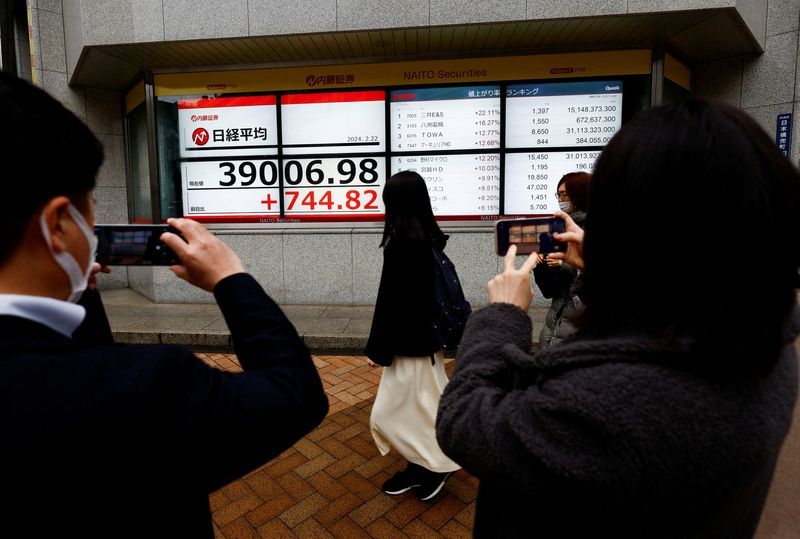By Junko Fujita
TOKYO (Reuters) - As Japan's Nikkei catapults past its bubble-era peak and investors grow confident of future gains, flows in the derivative market points to a potential interruption in short-term momentum.
The Nikkei share average sailed past 1989 highs in afternoon trade on Thursday to a record 39,029, buoyed by a tech-rally, solid earnings and a weaker yen currency inflating exporters' profits. It is up more than 16% so far this year.
During the upswing overseas hedge funds, including commodity trading advisors or CTAs, built significant long positions in Nikkei 225 futures. Positioning data suggests their exit is imminent.
"They are looking for a timing to lock in profits from them," said Masanari Takada, a quantitative and derivatives strategist at J.P. Morgan Securities.
"That timing might be when the Nikkei hits a new record," he said, with the level pretty "comfortable" for an exit.
Investors tend to sell stocks when futures prices fall as they indicate a future price decline. Prices of futures and stocks also tend to move alongside each other as the two prices converge for the settlement of futures contract.
Latest trading data signals that selling has already begun, with hedge funds unwinding longs significantly increasing their shorts in futures.
Short positions in benchmark futures held by hedge funds increased to 12,250 contracts as of Feb. 13, exceeding 12,070 long contracts, according to data from CME Group (NASDAQ:CME), published by the U.S. Commodity Futures Trading Commission.
Longs were at 12,516 in the previous week, with 8,141 shorts. In December long positions stood at 18,037, with 5,232 shorts.

"The Nikkei made its inevitable run to 39k," said Matt Simpson, market analyst at City Index in Brisbane.
"But I always remain sceptical of such breaks of big numbers as they can suck in the late comers, only to find they have been 'caught short' ... before a volatile shakeout ensues."